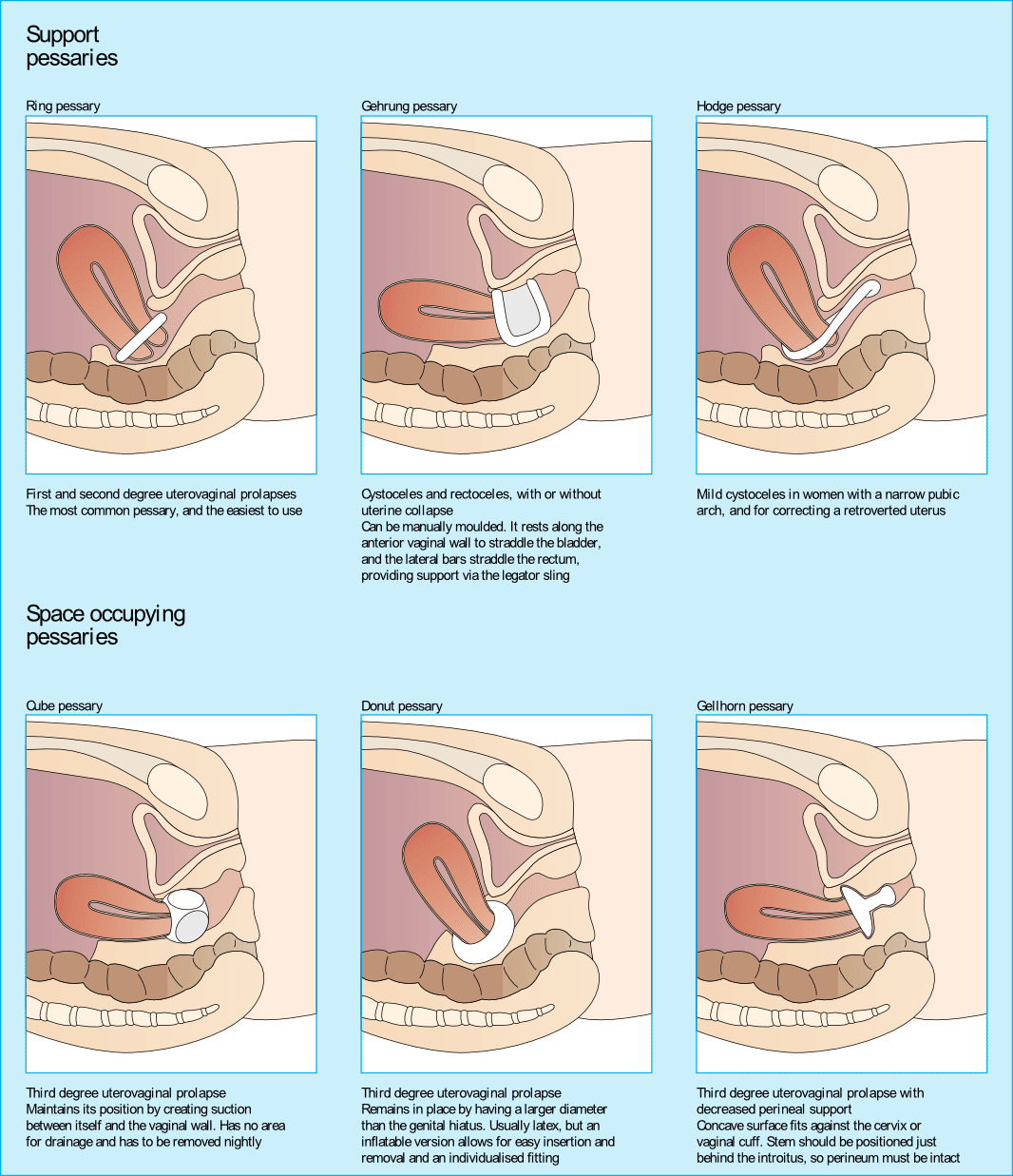
This refers to a drooping of the uterus, bladder or rectum beyond the vagina. It is more common in older women. The main cause of this is weakened pelvic floor muscles from damage sustained during pregnancy and childbirth, weakening from ageing and menopause and obesity. Read more about it here.
This is a soft, removable device that is inserted in your vagina to support your prolapsed pelvic organs and hence provide relief of your symptoms of POP. This is temporary as if the pessary is removed, POP will recur. Vaginal pessaries come in many different shapes and sizes. The most commonly used one is the ring pessary, which needs to be removed, washed and replaced by your gynaecologist every 3-4 months or so.
A vaginal pessary can be fitted after a vaginal examination by your gynaecologist in the clinic. Sizing sometimes requires trial and error as every woman’s vagina, degree of prolapse, activity levels and toileting habits are different – much like trying on new shoes! Pessaries that are too small may drop out easily on physical activity or while on the toilet bowl passing urine or motion (particularly if you have a habit of straining). Pessaries that are too large may cause discomfort and rub excessively against the vaginal walls causing ulcerations, bleeding and infection.
With menopausal changes causing thin and dry vaginal skin (vaginal atrophy) and the presence of a vaginal pessary, it is important to use topical vaginal estrogen creams and tablets regularly to reduce the risk of ulceration and bleeding.
Photo credit: Madhero88 / Wikimedia Commons